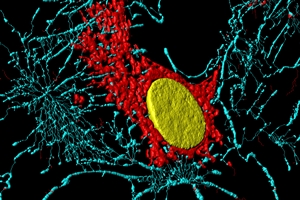17 June 2014. The biotechnology company Fibrocell Science Inc. in Exton, Pennsylvania is licensing stem cell discoveries from University of California in Los Angeles for personalized treatments of serious bone and connective tissue conditions. Financial aspects of the licensing deal were not disclosed.
Fibrocell Science develops treatments for rare and serious conditions affecting bones, connective tissue, and skin. The company’s technology designs personalized therapies from a patient’s own connective tissue cells called fibroblasts that secrete collagen proteins and maintain the structural framework for tissue repair and healing of wounds. The company’s partnership with another company, Intrexon Corp., is designing personalized, genetically-modified biologic treatments from fibroblasts for burn and vocal cord scarring.
Fibrocell also is collaborating with UCLA pharmacologist James Bryne that generated the discoveries in the licensing deal. Much of Bryne’s research involves reprogramming cells from a patient into induced pluripotent stem cells that can be transformed into regenerative therapies for spinal cord injuries and other serious conditions. Under the agreement with UCLA, Fibrocell gains an exclusive license to techniques developed between the company and UCLA for producing stable, commercial-quality induced pluripotent stem cells from a patient’s skin cells for therapies.
The UCLA collaboration is developing as well techniques for adapting a patient’s own fibroblasts to stimulate production of bone morphogenetic protein 2 at surgical sites involving repair of bones. Bone morphogenetic protein 2 is part of the family of transforming growth factors-beta and induces bone and cartilage formation. Under the deal, Fibrocell gains exclusive rights to those techniques.
Last week, Fibrocell’s genetically-modified human fibroblasts were given orphan drug status from the U.S. Food and Drug Administration as a treatment for dystrophic epidermolysis bullosa, a genetic skin condition affecting some 3,000 to 6,000 people in the U.S. Orphan drug designations provide developers with tax credits for clinical trials and exemptions from FDA fees as incentives to create therapies for conditions affecting 200,000 or fewer people in the U.S.
Read more:
- Pfizer, Biotech to Partner on Brown Fat Cell Research
- Engineered Cardiac Tissue Helps Veins Return Blood to Heart
- Process Devised to Generate Stem Cells from Drop of Blood
- Quality Assurance Techniques Proposed for Stem Cells
- Calif Stem Cell, UC Irvine Partner on Eye Transplant Tissue
* * *


 RSS - Posts
RSS - Posts
You must be logged in to post a comment.